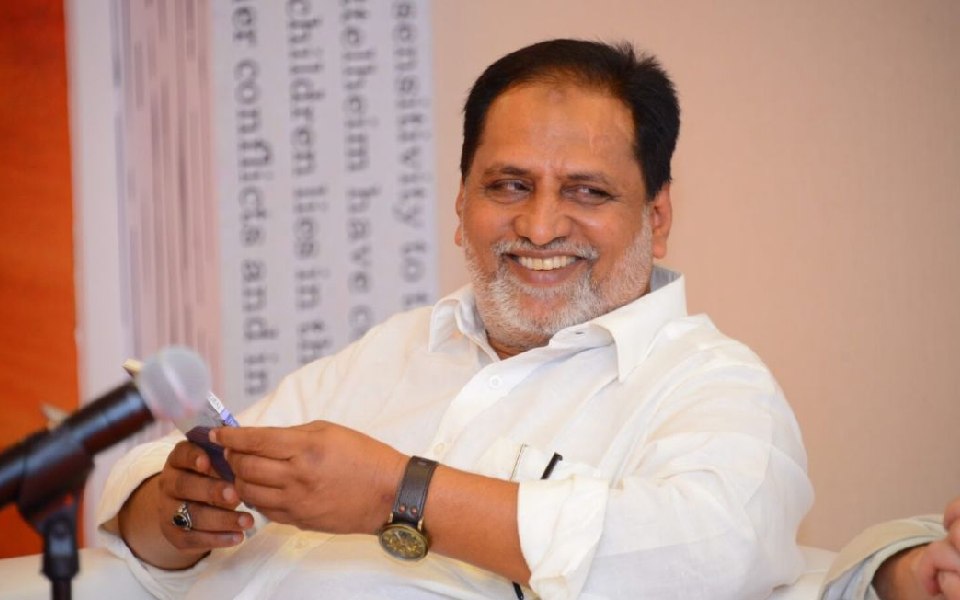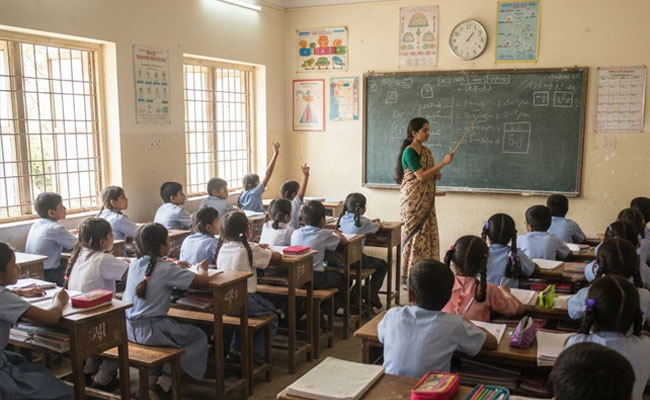Bengaluru: The Karnataka Media Academy announced its Lifetime Achievement Awards, Annual Awards, and Endowment Awards for 2023 and 2024 on Thursday.
The prestigious Lifetime Achievement Award for 2023 was announced for veteran journalist A.C. Shivanna. For 2024, Abdussalam Puthige, Editor-in-Chief of Vartha Bharati, was selected for this honor for his significant contributions to journalism.
Among the Annual Award recipients for 2023 was Ibrahim Adkasthala from Vartha Bharati, recognized for his outstanding work. Muhammad Akheel, also from Vartha Bharati, received an Endowment Award for his impactful reporting.
Several other journalists were acknowledged for their exceptional contributions over the two years. Notable recipients of the 2023 Annual Awards included Gangadhar Modliyar, Prof. Usha Rani N., Sushilendra Nayak, Vasudeva Holla, Alfred Tennison, and others who excelled in various fields of journalism.
For 2024, recipients of the Annual Awards included Prof. A.S. Balasubrahmanya, Rishikesh Bahadur Desai, Subhash Huggar, and several other notable journalists whose work brought significant attention to pressing issues in society.
The Endowment Awards highlighted excellence in specific categories. The Kannadamma Patrike Award was given to Ravi Kumar Channabasappa Kagganavar for his report on KYC updates and Vijay Kotiyaan from Vijay Karnataka for his feature on intellectuals. The
Mysuru Diganta Award recognized Shivananda Gombi of Kannada Prabha for his report on villagers emptying lake water and Sandhya Hegde of Prajavani for her feature on a beedi worker’s dream cut short.
Other significant awards included the Praja Sandesha Award for Shilpa P. of Deccan Herald for her report on manual scavenging, the Dr. B.R. Ambedkar Mookanayaka Award to K. Neela from Kalaburagi, and the C.V. Rajagopal Memorial Award to K.M. Ravishankar from Kannada Prabha.
Special mentions for 2024 included Muhammad Akheel from Vartha Bharati for his report on untouchability in Koppal, B.K. Devayya from Republic Kannada News for his report on delayed pensions, and Nandeesh Mallenahalli from Suvarna News for a series on land allocation for the specially-abled.
Let the Truth be known. If you read VB and like VB, please be a VB Supporter and Help us deliver the Truth to one and all.
Chennai (PTI): Afghanistan skipper Rashid Khan called for more bilateral series against stronger cricketing nations after his team signed off from the T20 World Cup on a high, defeating Canada in their final group match here on Thursday.
Afghanistan played some exhilarating cricket, going down to South Africa in a gripping second Super Over after the scores were tied, a humdinger that provided one of the early thrills of the World Cup.
However, the spin-bowling stalwart said Afghanistan could make significant strides if they get regular opportunities to compete against stronger cricketing nations.
"Couple of areas to improve, with the batting, the middle order got a bit stuck against the big teams, and then with the bowling the death overs. That comes when you play the bigger teams in bilateral series," said Rashid after his team defeat Canada by 82 runs, with him returning excellent figures of 2 for 19.
The stalwart said the side had arrived well prepared for the tournament and produced some breathtaking cricket, but admitted the narrow defeat to South Africa proved costly and remained a painful setback.
"We were well-prepared (for the tournament), we played some unbelievable cricket. The game against South Africa, that really hurt everyone. We had to win one of those (first two) games and see how the tournament unfolded. We'll take some positive things from this World Cup and look forward," he said.
With head coach Jonathan Trott set to part ways with the team, Rashid described the departure as an "emotional" moment for the side.
"I think we had some wonderful times with him. Where we are now, he played a main role. It's emotional to see him leave us, but that's how life is. We wish him all the best and somewhere down the line we see him again."
Ibrahim Zadran, who was named Player of the Match for his unbeaten 95 off 56 balls, said it was satisfying to finally register a substantial score after two below-par outings.
"I enjoyed it, didn't play better cricket in first two innings, which I expect. Wanted to back my skills, really enjoyed it. Pressure was there, it's there all the time. I want to put myself in pressure situations and enjoy it," said Zadran.
"Wanted to play positive cricket, rotate strike and punish bad ball, create partnerships and this is what I have done."





